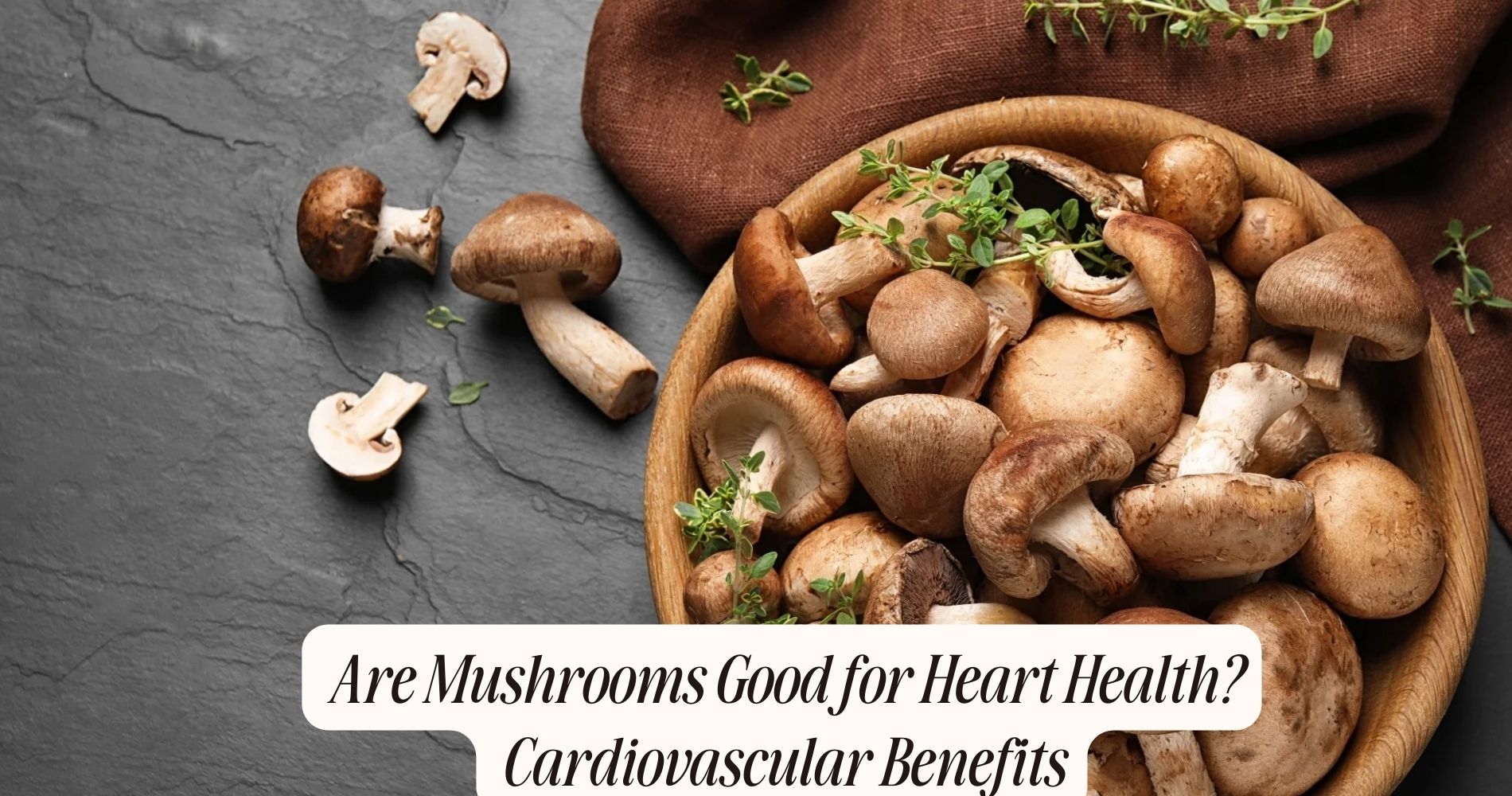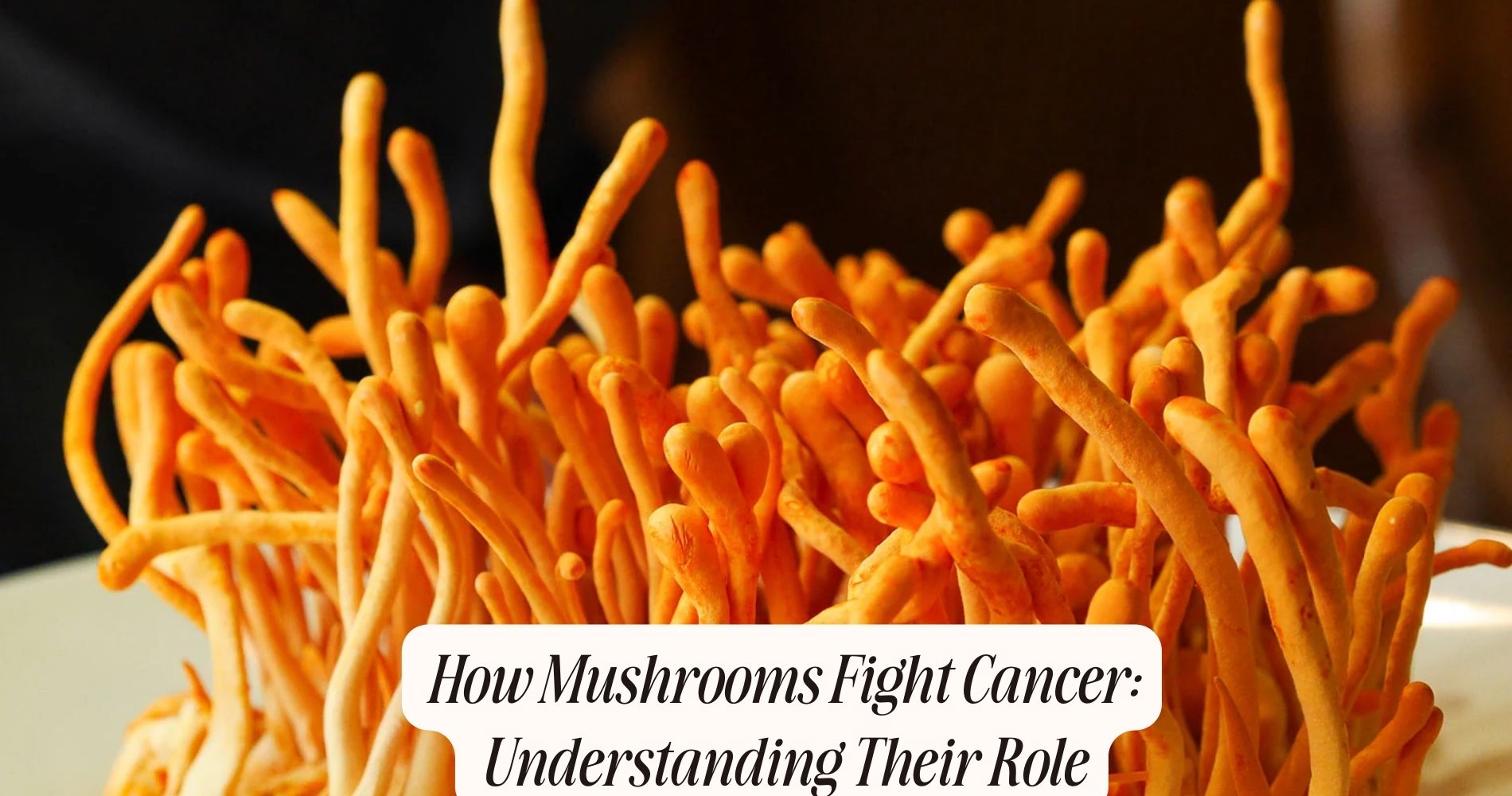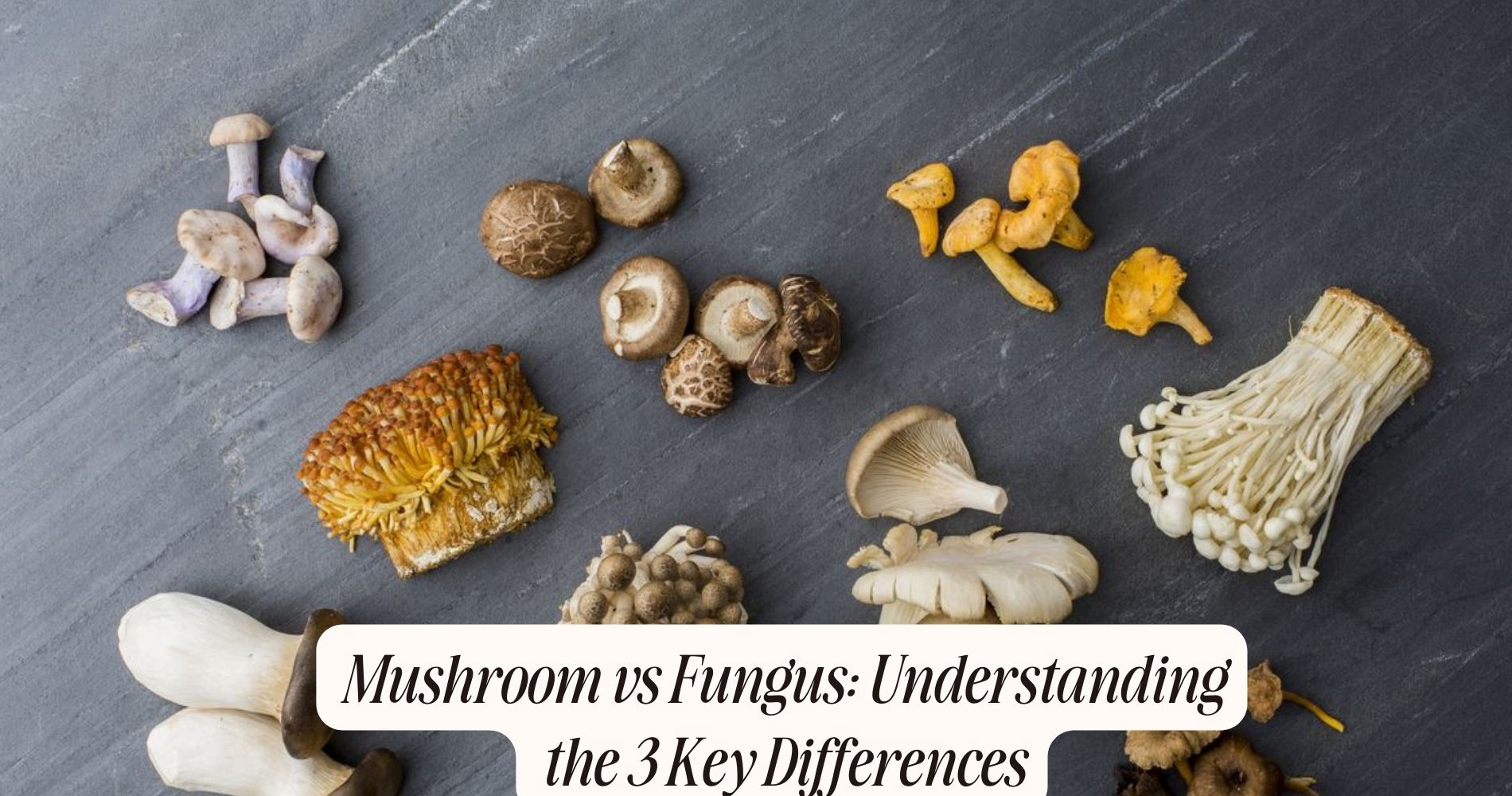
Are Mushrooms Good for Heart Health? Cardiovascular Benefits
Are mushrooms good for heart health? Yes, mushrooms are indeed beneficial for heart health. They're rich in essential nutrients like selenium, potassium, and antioxidants, which help reduce oxidative damage. The beta-glucans in mushrooms also aid in lowering LDL cholesterol, while their anti-inflammatory properties reduce chronic inflammation—a key risk factor for cardiovascular diseases. Additionally, compounds like ergothioneine and nitric oxide improve blood vessel health by enhancing endothelial function and promoting vasodilation. Consuming mushrooms regularly can help manage cholesterol levels and support overall cardiovascular well-being. Discover how these dietary additions can make a significant impact on your heart health.
Nutrient Profile of Mushrooms
Mushrooms offer a robust nutrient profile, rich in essential vitamins, minerals, and antioxidants that contribute to overall heart health. By incorporating mushrooms into your diet, you can benefit from their significant vitamin content. For example, they're an excellent source of B vitamins such as riboflavin (B2), niacin (B3), and pantothenic acid (B5). These vitamins play important roles in energy metabolism, red blood cell formation, and maintaining healthy skin and nerves, which are essential for cardiovascular health.

In addition to their impressive vitamin content, mushrooms are packed with minerals like selenium, potassium, and copper. Selenium acts as a powerful antioxidant, protecting your cells from oxidative stress, while potassium helps regulate blood pressure by balancing sodium levels in your body. Copper assists in maintaining healthy blood vessels, nerves, and immune function.
Moreover, the antioxidant levels in mushrooms are remarkable. Compounds like ergothioneine and glutathione work synergistically to neutralize free radicals, reducing oxidative damage to your cardiovascular system. These antioxidants also help in mitigating inflammation, a known risk factor for heart disease.
Cholesterol Reduction
Research indicates that incorporating mushrooms into your diet can significantly lower cholesterol levels, contributing to improved cardiovascular health. Clinical studies suggest that certain bioactive compounds in mushrooms, such as beta-glucans, play an important role in modulating cholesterol metabolism. These compounds help reduce the absorption of cholesterol in the intestines, thereby lowering overall blood cholesterol levels.
Furthermore, mushrooms are rich in dietary fiber, which is known to aid in the reduction of low-density lipoprotein (LDL) cholesterol. The soluble fiber in mushrooms binds to bile acids in the digestive tract, facilitating their excretion. This process forces the liver to use more cholesterol to produce new bile acids, thereby reducing the cholesterol circulating in your bloodstream.
Adding mushrooms to your diet can also enhance the balance between high-density lipoprotein (HDL) and LDL cholesterol, promoting a healthier lipid profile. Studies have shown that regular consumption of mushrooms can result in significant reductions in total cholesterol and LDL levels. This makes them a valuable dietary component for those looking to manage hypercholesterolemia and reduce the risk of cardiovascular diseases.
Anti-Inflammatory Properties
Numerous studies highlight that the bioactive compounds in mushrooms, such as polysaccharides and phenolic compounds, exhibit potent anti-inflammatory properties, which can greatly contribute to cardiovascular health. These compounds work by inhibiting pro-inflammatory cytokines and modulating inflammatory pathways, thereby reducing systemic inflammation.
Chronic inflammation is a well-known risk factor for various cardiovascular diseases, including atherosclerosis, hypertension, and heart failure.
By incorporating mushrooms into your diet, you can benefit from their immune-supportive properties. Polysaccharides, particularly beta-glucans, enhance the activity of immune cells like macrophages and natural killer cells, thereby promoting an anti-inflammatory environment. This immune support not only aids in cardiovascular health but also contributes to overall well-being.

Furthermore, inflammation can negatively impact cognitive function, leading to neurodegenerative diseases. The anti-inflammatory properties of mushrooms help mitigate this risk by reducing neuroinflammation, which is linked to cognitive decline.
Regular consumption of mushrooms can thus support both heart and brain health, offering a dual benefit.
Blood Vessel Health
A growing body of evidence suggests that the bioactive compounds in mushrooms, such as ergothioneine and nitric oxide, play an essential role in maintaining and improving blood vessel health. These compounds have potent antioxidant properties that protect the endothelium, the thin layer of cells lining your blood vessels, from oxidative stress. By reducing oxidative damage, ergothioneine helps enhance endothelial function, which is important for ideal vascular health.
Nitric oxide, another important compound found in mushrooms, directly influences vascular elasticity. It promotes vasodilation, allowing blood vessels to widen and therefore improving blood flow. Improved vascular elasticity reduces the risk of hypertension and other cardiovascular diseases. Additionally, nitric oxide supports endothelial function by promoting the release of endothelial progenitor cells, which help repair damaged blood vessels.
Clinical studies have shown that regular consumption of mushrooms can lead to significant improvements in arterial stiffness and overall vascular health. The presence of these bioactive compounds in mushrooms not only aids in maintaining the structural integrity of blood vessels but also ensures they function efficiently.
Incorporating Mushrooms in Diet
Incorporating mushrooms into your diet can be an important strategy for enhancing heart health due to their rich content of bioactive compounds. These compounds, including antioxidants, fiber, and essential minerals, have been shown to support cardiovascular function and reduce inflammation.
To maximize these benefits, it's vital to understand the culinary versatility of mushrooms. They can be easily added to a variety of dishes such as salads, soups, stir-fries, and even smoothies, making them a convenient option for daily consumption.

From a clinical perspective, mushrooms like shiitake, maitake, and reishi contain specific polysaccharides and beta-glucans known to lower cholesterol levels and improve blood pressure regulation.
When selecting mushrooms, consider sustainable sourcing to make sure you're getting the highest quality produce while also supporting environmental health. Opt for organic or locally grown varieties when possible, as these are less likely to contain harmful pesticides and are often fresher.
Frequently Asked Questions
Can Mushrooms Help in Managing Blood Pressure Levels?
Yes, mushrooms can help manage blood pressure levels. They contain nutrient content like potassium and antioxidants that support blood vessels, promoting vasodilation and reducing hypertension. Clinical studies show mushrooms' positive impact on cardiovascular health.
Are There Specific Mushroom Varieties Best for Heart Health?
You should prioritize varieties like Shiitake and Reishi. Their antioxidant properties and high dietary fiber content provide significant cardiovascular benefits. Clinical insights suggest these mushrooms can support heart health through oxidative stress reduction and improved gut health.
Do Mushrooms Have Any Potential Side Effects for Heart Patients?
You should be aware that mushrooms can potentially cause allergic reactions or nutrient deficiencies in heart patients. Monitoring your intake and consulting with a healthcare provider is crucial to confirm they're safe for your condition.
How Does Consuming Mushrooms Compare to Other Heart-Healthy Foods?
When comparing mushrooms to other heart-healthy foods, you'll find mushrooms offer excellent nutrient density and fiber content. They provide unique bioactive compounds that may complement the benefits of other heart-healthy options like leafy greens and whole grains.
Can Mushrooms Interact With Heart Medications?
Yes, mushrooms can interact with heart medications. Some compounds in mushrooms may cause drug interactions, leading to medication interference. Always consult your healthcare provider for evidence-based advice on combining mushrooms with your heart medications.
Conclusion
Incorporating mushrooms into your diet can greatly benefit heart health. Rich in essential nutrients, they help reduce cholesterol levels and exhibit anti-inflammatory properties.
Their positive impact on blood vessel health further underscores their cardiovascular advantages. By making mushrooms a regular part of your meals, you're actively supporting your heart's well-being.
The scientific evidence is clear: mushrooms are a valuable addition to a heart-healthy diet.




